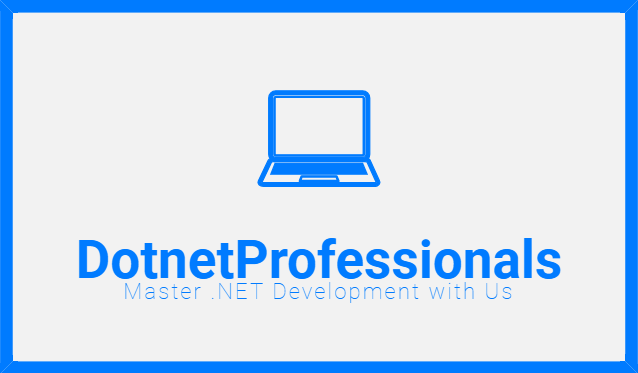Back to: C# .NET for Begineers and Professionals
Types of Applications in Software Development
Overview
In software development, understanding the different types of applications is crucial for selecting the right tools and technologies for a given project. This lesson explores various types of software applications, their uses, and examples. We will delve into general applications, business applications, custom applications, and more, highlighting their key features and benefits.
General Application Software
General application software is designed for everyday tasks and can be used by a wide range of users. These applications are typically user-friendly and cater to common needs.
- Word Processing Software
- Examples: Microsoft Word, Google Docs
- Uses: Creating, editing, and formatting text documents.
- Features: Spell check, grammar check, templates, and collaboration tools.
- Spreadsheet Software
- Examples: Microsoft Excel, Google Sheets
- Uses: Organizing data in tabular form, performing calculations, and data analysis.
- Features: Formulas, charts, pivot tables, and macros.
- Presentation Software
- Examples: Microsoft PowerPoint, Google Slides
- Uses: Creating slide presentations for meetings, lectures, and demonstrations.
- Features: Slide templates, animations, and multimedia support.
- Database Software
- Examples: Microsoft Access, MySQL, MS SQL
- Uses: Storing, retrieving, and managing data efficiently.
- Features: Data entry forms, queries, and reporting tools.
- Web Browsers
- Examples: Google Chrome, Mozilla Firefox
- Uses: Accessing and navigating the internet.
- Features: Tabbed browsing, bookmarks, and extensions.
Business Application Software
Business application software is designed to support business operations, enhance productivity, and improve efficiency.
- Customer Relationship Management (CRM) Software
- Examples: Salesforce, HubSpot CRM
- Uses: Managing customer interactions, sales, and customer service.
- Features: Contact management, sales tracking, and automation tools.
- Enterprise Resource Planning (ERP) Software
- Examples: SAP, Oracle ERP Cloud
- Uses: Integrating and managing core business processes.
- Features: Financial management, supply chain management, and human resources management.
- Project Management Software
- Examples: Asana, Trello, Jira
- Uses: Planning, organizing, and managing project tasks and resources.
- Features: Task assignments, timelines, and collaboration tools.
- Accounting Software
- Examples: QuickBooks, Xero
- Uses: Managing financial transactions and accounting records.
- Features: Invoicing, payroll, and expense tracking.
- Communications Software
- Examples: Zoom, Slack, Skype, Microsoft Teams
- Uses: Facilitating communication and collaboration within organizations.
- Features: Video conferencing, messaging, and file sharing.
Custom Application Software
Custom application software is tailored to meet the specific needs of an individual or organization. It is developed based on the unique requirements of the user.
- Custom Business Applications
- Examples: Custom CRM solutions, inventory management systems
- Uses: Addressing specific business processes and workflows.
- Features: Tailored functionality, integration with existing systems, and scalability.
- Web Applications
- Examples: Custom e-commerce platforms, web-based reporting tools
- Uses: Providing interactive and dynamic web experiences.
- Features: Responsive design, user authentication, and real-time data updates.
- Mobile Applications
- Examples: Custom mobile banking apps, fitness tracking apps
- Uses: Offering services and features on mobile devices.
- Features: Push notifications, offline access, and device integration.
Specialized Application Software
Specialized application software is designed for specific tasks and industries. These applications cater to niche markets and often require specialized knowledge to use effectively.
- Multimedia Software
- Examples: Adobe Photoshop, Final Cut Pro
- Uses: Creating and editing images, videos, and audio.
- Features: Advanced editing tools, filters, and effects.
- Educational Software
- Examples: Duolingo, Khan Academy
- Uses: Facilitating learning and education.
- Features: Interactive lessons, quizzes, and progress tracking.
- Scientific Software
- Examples: MATLAB, SPSS
- Uses: Conducting scientific research and analysis.
- Features: Data visualization, statistical analysis, and simulation tools.
- Gaming Software
- Examples: Steam, Unity
- Uses: Developing and playing video games.
- Features: Game engines, graphics rendering, and multiplayer support.
Conclusion
Understanding the different types of software applications is essential for selecting the right tools for your projects. Whether you are developing general, business, custom, or specialized applications, each type has its unique features and benefits. In the next lesson, we will explore programming methodologies, focusing on various approaches to software development and their advantages.
